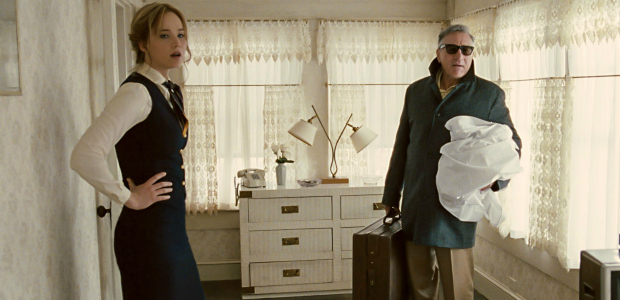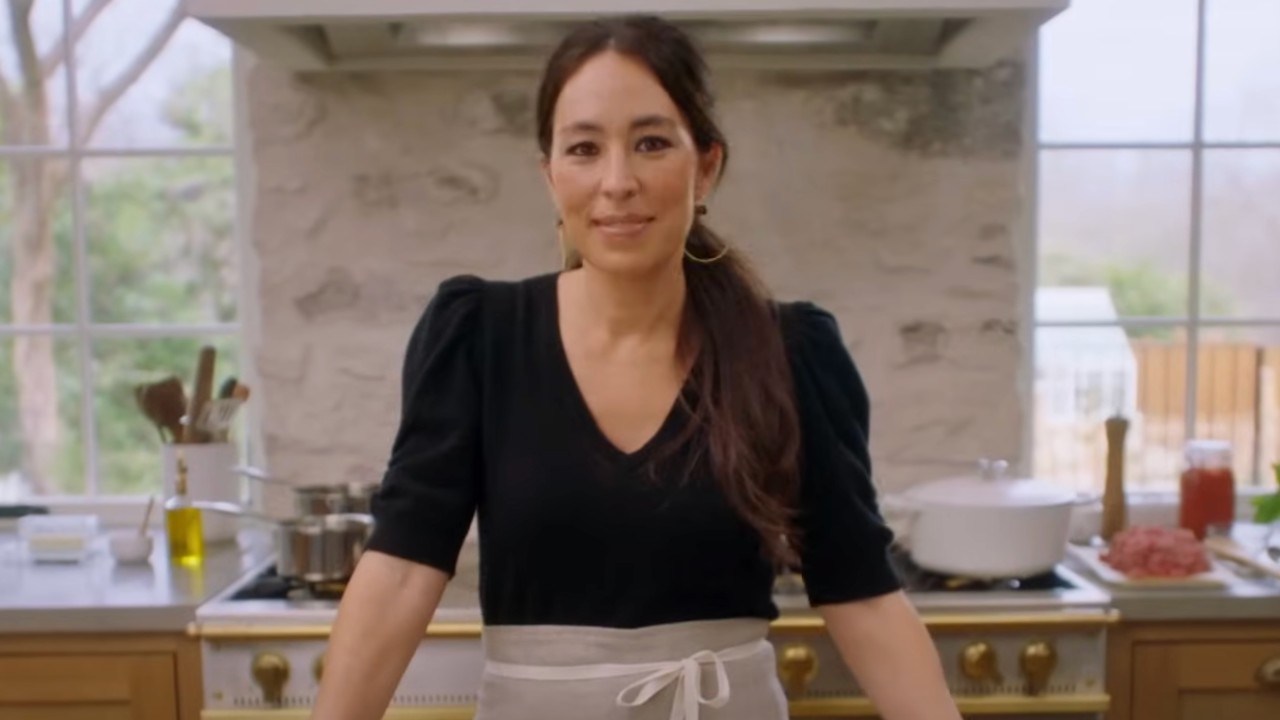It’s a miracle Joy works as well as it does for as long as it does. (I’m sorry. I know. But it’s sitting right there, so I had to take it. It gets marginally better from here, I promise.)
In telling a loose biopic of Joy Mangano, the by-her-bootstraps inventor of the Miracle Mop, quirky and agitating filmmaker David O. Russell (American Hustle, Silver Linings Playbook) tosses out multiple, empowering metaphors meant to honor independent women who turn personal weaknesses into professional strengths. A title card at the start of the film actually makes this dedication, so Russell’s intentions are clear. We mainly stay invested in Joy because Russell’s current muse, the flat-out brilliant Jennifer Lawrence, delivers another multi-faceted performance as a forceful, injured, unflappable and surprisingly relatable female lead in an unfocused Russell comedy. Ultimately, Lawrence requires a make-believe Miracle Mop of her own to clean up the mess that sullies the third act of Joy, but again, it works for a while because she’s so good at pulling off what her director requests.
Outside of a few sidesteps, David O. Russell has always explored the dynamics of dysfunctional families in his ensemble comedies, and Joy doesn’t break that streak. Joy Mangano (Lawrence) is too young to be playing Mother Hen to her fractured family, and yet, too many in the audience will be able to relate to the way this blue-collar dreamer juggles the multiple mistakes in her life – both the ones that she is responsible for (like her ex-husband, played by Edgar Ramirez, living in her basement) and the ones she couldn’t control (like her divorced parents, played by Robert De Niro and Virginia Madsen, living in her home as well). We’re told that Joy used to invent things, but “Life” pulled her away from her natural talent. However, an idea for a new product reinvigorates Joy’s creative profile, and throws her a lifeline when she needs it the most.
Lawrence’s latest collaboration with Russell, the third of hopefully many, bears a closer resemblance to the manically uplifting mojo of their Silver Linings Playbook than the unpredictable waves of American Hustle. A fine ensemble ramps up to the clickety-clack verbal energy that Russell strives to maintain. For the first third of Joy -- as Mangano lays out the smothering weight of her needy family – Russell displays the kind of vice grip on his characters and their dialogue that’s associated with Wes Anderson. In a good way. Joy is distinctly quirky, but very much a product of Russell working with performers who are comfortable in his vibe. Even when he pulls unnecessary tools from his bag of tricks – like a narrator, or a soap opera that occasionally pulls in his characters – they are amusing asides that contribute to the off-kilter enjoyment of the unfolding story. (Though, if you despise Russell’s methods, I can easily see how such tactics would drive you nuts.)
Joy transcends its peculiar noise, however, when Mangano, having invented a prototype for what would become the Miracle Mop, buckles down and begins to sell it… and, in essence, sell herself. Here, we begin to see the potential that Joy should have fully seized – and almost does, for a large chunk of its run. Seeking an avenue to peddle her mop, Joy encounters Neil Walker, an executive at the home-shopping network QVC who teaches Mangano the ropes and gives her a chance. She gets a financial boost from her father’s new girlfriend, Trudy (Isabella Rossellini, of all people), as well as a valuable lesson about how to fight in business. There’s an American Dream quality at play in Joy, and when Russell and Lawrence are two-stepping, it flies.
But Joy can’t tap dance around a few too many problems. Without a natural ending, Russell’s screenplay – reportedly reworked from an original concept by Annie Mumolo (Bridesmaids) – flounders around looking for proper direction after too long. Lawrence is always compelling as a competitive businesswoman fighting for what is hers. But the stitches on the script begin to show, and subplots that don’t fit fail to create the conflict that Russell was seeking.
Joy is enjoyable, particularly if you buy into Russell’s brand of erratic, homespun dysfunction, carried on the broad shoulders of his favorite leading lady. It can't be undersold how fantastic Lawrence is in this movie, almost miraculously weaving an entrepreneurial master class with a grit and determination that's far more mature than her age (25) suggests she can play. Something tells me both Russell and Lawrence realize that they could have created something wonderful this time out if they stepped back, let it breathe for a bit, and took a little more time hammering out a cleaner script. Can't wait to see what they do next.

Sean O’Connell is a journalist and CinemaBlend’s Managing Editor. Having been with the site since 2011, Sean interviewed myriad directors, actors and producers, and created ReelBlend, which he proudly cohosts with Jake Hamilton and Kevin McCarthy. And he's the author of RELEASE THE SNYDER CUT, the Spider-Man history book WITH GREAT POWER, and an upcoming book about Bruce Willis.











